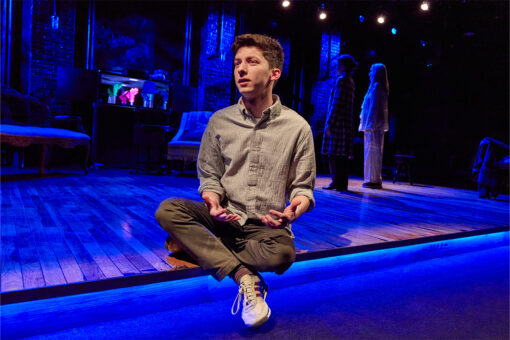Yesterday, on Yom Kippur, a gunman tried to enter a synagogue in Halle, a town in eastern Germany. He was unsuccessful in entering, but killed two people outside. The gunman was a far right extremist, who filmed himself on the live-streaming platform Twitch. If this news reminds you of the Pittsburgh synagogue shooting, or the Poway synagogue shooting, you’re not alone. Here we are, again, covering a tragedy that impacted the entire Jewish community.
After Poway, I gathered Team Alma to talk about what had happened. I wrote that when I saw the news of another synagogue shooting, “my heart dropped but I wasn’t surprised. I was immediately thrown back to another Saturday, six months ago, when news of Pittsburgh starting breaking through. Another. How much has this been normalized? How do we feel anything but numb? Or angry or sad or hopeless? How do we react to another synagogue shooting, six months to the day after the Pittsburgh synagogue shooting?”
I could write the same introduction here: It feels normalized, again. I feel numb, again. I feel angry and sad and hopeless, again.
What can we do as Jewish journalists? As Jewish people? How can we shake ourselves out of feeling numb? How can we move forward?
I asked a few of my colleagues at 70 Faces Media, Alma’s parent company, to join me to chat about this on Slack. In conversation was Molly Tolsky, Alma’s editor, Arielle Kaplan, Alma’s editorial assistant, Lior Zaltzman, Kveller’s associate editor, and Laura E. Adkins, JTA’s opinion editor. (And hello, I am Emily Burack, Alma’s associate editor, the questions are also me talking.)
* * *
Where were you when you find out? What was your gut reaction?
Molly: I woke up pretty early on Wednesday even though I had the day off for Yom Kippur, around 7:30. I definitely didn’t want to get out of bed yet so I obviously just grabbed my phone and started scrolling through Twitter. It took about five minutes before I saw a friend tweet about the attack.
I was awake for five minutes before seeing this news. In those five minutes I thought it was weird that nothing terrible seemed to happen while I slept. https://t.co/e70Bmz0h4M
— Molly Tolsky (@mollytolsky) October 9, 2019
Arielle: I was in my bed, not having fully woken up yet. I saw Molly’s tweet and my reaction was very surprising to me. I was annoyed. With Poway and Pittsburgh I broke down crying, but this time I just thought, never again is starting to lose its meaning.
Lior: I was groggy in bed and honestly didn’t believe it wasn’t a dream at first. At first they also framed it as a shooting by a synagogue so I was hoping it wasn’t anti-Semitic, but a coincidence.
Emily: I was scrolling Twitter before Yom Kippur services, saw the news, and just put my phone down and thought, fuck. I don’t want to deal with this right now. And then our rabbi mentioned it briefly in his sermon.
Laura: I was in the car on the way to a break fast meal when I saw dozens of Slack notifications from the news team. I’m Orthodox, so I don’t use my phone on Shabbat or Jewish holidays, and my first reaction when I saw was, who is Halle? And then when I realized what happened, I thought, Oh, it’s Europe, this stuff happens all the time.
Molly: Honestly, my gut reaction was: of course. Of course this happened again. And of course it happened on Yom Kippur. I think, without admitting it to myself, I went into this holiday bracing myself for news like this. It seemed inevitable.
Yeah, it didn’t feel surprising. I also thought, of course this happened. Which is terrible. Is this how numb we are now?
Arielle: I think the fact that it happened in Germany made me angrier and more scared.
Laura: There’s something about it being in the historic homeland of the Nazis that makes it feel predictable even when it shouldn’t be, to me.
Molly: Yes, for sure. That was particularly painful, though. Like there, of all places? Shouldn’t the lessons have been learned by now? But I know they haven’t been.
Emily: I saw people commenting on Alma’s Instagram, “Was the Holocaust not enough?” which made me really sad.
Lior: Unlike Pittsburgh, the main feeling for me was anger. I think because I’m Israeli and the granddaughter of survivors, maybe I have a different history with Germany. Like I went on an exchange at a small town in Germany when I was in high school so I got to hear from people whose grandparents were alive during the Holocaust on the other side. There was a lot of remorse and sadness. I had this sense that Germany was a place that really internalized never again even though I saw the political shift that’s been happening there…. So this was just… so ugly. For someone to literally say the Holocaust never happened in friggin’ Germany as they were going to shoot a synagogue.
Laura: In a sense it seems like Germany has been super penitent and done the most to combat anti-Semitism. And then you have this and other outrageous instances of far right nationalism.
Why do you think we are all so numb? Is it because we work in Jewish media? Or just being Jewish in America in 2019?
Molly: Pittsburgh was shocking to me. That one shook to me my core — I felt genuinely depressed. By the time Poway happened, I was like okay, here we go, this is the new normal. So this time, it really was just like, yeah. This will keep happening because nobody’s really doing anything about it.
Emily: Yeah, Molly, even when I texted you about posting something on our social — I had made these graphics before. The language is the same. It’s like, here we go again.
Molly: Yes, that was a really sad moment for me, Emily. “What did we do last time? Let’s do the same thing.” That should not be a standard procedure for us, but it now is.

Laura: I was discussing that idea of numbness with my basically brother on the way back from the break fast. He asked if this sort of reporting takes its toll on us, and shared he is always impacted by painful stories. And my response was honestly…we have to turn so much of human reactions off as journalists, until the story is out there. Pittsburgh, I also found out hours after because that was on Shabbat, and I had a friend’s wedding the very next day. I was basically awake 36 hours in work mode, then wedding happy mode, and then collapsed into sleep with no time to think or feel about it.
Emily: Yeah I hear that, Laura. With Pittsburgh, I feel like I didn’t even give myself time to react. I just thought: How can I help at work? How can I get the story right, and out?
Arielle: I think working at a Jewish media company makes it more emotionally draining, but just being Jewish in America is what’s numbing.
Laura: So well put; these aren’t just stories happening to someone else. They are happening to us. With this attack, several staffers also knew people who were there.
Molly: It is a very weird feeling, being a Jewish journalist covering these things. Especially since they tend to happen when we’re off, for Shabbat or holidays or otherwise. So not only do you have to “deal” with this now, but it’s on your day off, when you honestly just want to shut off the news and enjoy your life.
We touched on this before, but given that it happened on Yom Kippur — did you feel anything going into the High Holidays? I know I felt a heightened fear.
Laura: I felt grateful to attend High Holiday services at a synagogue in a very Jewish town, which also always has a strong police presence and private security. I wasn’t too worried, but had in the back of my mind that something may happen at another synagogue.
Emily: Yeah, my synagogue has also always had a very strong police presence, but this was the first year I actively thought about what they were there for — not just to direct traffic. My dad and I always go to Kol Nidre services, and this time, we sat at the very back of our sanctuary and I had the thought: If a gunman comes in, we would be the first to die. Which is a real thought that went through my mind! Even though our synagogue had a heightened police presence/security throughout the whole time.
Molly: My High Holidays observances have wavered a lot in the past few years, and largely depend on how I feel that year. Some years I’m really driven to find a Kol Nidre service, to fast, etc. And some years I don’t. This year I was feeling pretty ambivalent. And honestly, though I don’t think I would have articulated it at the time, the strong premonition that something somewhere would happen definitely didn’t make me feel any more eager to go to services.
Laura: Molly, I hear you. I had a hard time focusing on the personal penitence part of the holiday, and was more focused on the “woe is the Jews” part of it — I connected more this year with the parts of the makzor that shared how many parts of the service were composed by rabbis in their dying hours, gruesome as it sounds.
Arielle: It’s a very bleak way to start the new year. I thought we’d leave 5779 behind with the atrocities of Pittsburgh and Poway, starting a new year refreshed and ready to combat anti-Semitism as best we can… But like they say, the best laid plans…
Lior: I’m still feeling really furious about it. But with Pittsburgh and Poway, I had to really engage with the victims and their narratives for work and that made it so somber and sad. We also don’t know the victims here yet.
Last time — ugh, last time — we talked about how do we move forward, as members of the “Jewish media,” and as Jews in America. Has anything changed? How do we move forward? How do we shake ourselves out of numbness?
Laura: First, I feel our job as reporters is to stay numb until we get the facts, and then tap into our humanity to probe deeper — to ask those big questions, as it were.
Arielle: I say this every time: As Jews in America, we have to be prouder and louder about our Judaism. We can’t get fatigued. We can’t hide. We have to keep going.
Lior: I agree with Arielle — I was walking past a synagogue yesterday and I just thought, I want more of a Jewish life. I need more meaning and more Judaism in my life now.
Emily: In terms of the facts, I don’t even want to learn more about the shooter, though. I feel like the coverage of these men perpetuates a really toxic cycle of imitation. Is that bad? That I don’t want to know his deal?
Lior: I don’t know. I think anger is actually good and motivating. I don’t need to know his deal. I just need to know that whatever stands behind him is vile and that it needs to be eradicated.
Laura: Oh man, for SURE. I like Arielle’s approach. It’s impossible to combat a hatred that isn’t based in logic with logic. We just have to show that “we will outlive them,” as the saying goes.
Molly: I do think, as Lior pointed out, hearing about the victims can help break out of that numbness. Putting a face and name and life to the term “victim.”
Laura: That’s what broke me after Pittsburgh.
But what will actually stop this from happening? I just have no clue.
Molly: Sometimes I’m comforted by the fact that the actual earth probably won’t survive for that much longer so all this awful stuff will go away with it. Am I being… too bleak?
Arielle: Hahah Molly… that honestly is slightly comforting.
Emily: It’s hard not to feel hopeless! Except knowing that Jews have always survived.
Laura: I don’t think you can stop it. But if turning terrible tragedy into renewed sense of Jewish engagement, like we saw after Pittsburgh and Poway, that does seem like a way to channel our pain into strength. And also fight like hell for better hate crimes laws in partnership with other minorities.
Arielle: As Jewish reporters, the most useful thing we can do is continue writing and reporting. Continue to empower Jews to be proud of their identities.
Laura: There’s a part of the Yom Kippur prayer service that talks about fighting for justice rather than simply fasting, and that felt particularly powerful this year.
Lior: I think also the fact that these are things we read on Twitter, we see online, this ideology is so close to us. It’s so alive right now on the internet. And we need to do more to weed it out. I was just thinking of like, someone reported David Duke on Twitter recently and Twitter was like, yes he’s using hate language, but they never deleted his account.
Emily: Like no person should be able to livestream a shooting? What dystopia are we in?
Lior: It was so gross! [The tech companies] need to understand that they are part of the problem. That they’re helping create bubbles and echo chambers for hate speech.
Molly: Yes. And we know places like 4chan are breeding grounds for white supremacists. Something has to be done about that.
Did you guys feel like you saw non-Jewish friends post about Halle?
Lior: No.
Laura: Not even a little bit.
Molly: I didn’t.
Arielle: Not at all.
Emily: Nope. But one non-Jewish friend did text me, like, thinking of you.
Laura: Nor after Pittsburgh! Which is hard. It feels like it’s not cool to stand in solidarity with the Jews. Or maybe it’s that we are tiny and genuinely no one knows.
Molly: Yeah, I didn’t feel a lot of solidarity after Pittsburgh either, Laura.
Arielle: The first thing I did after I saw the news was check the trending moments on Twitter and I was shocked that it wasn’t trending.
Is there something more we can do, as Jewish journalists, about that particular problem?
Molly: We work for Jewish media; do we need to also be freelancing for secular media so we can get this shit covered more?!
Emily: Keep talking about it. Keep posting.
Arielle: I guess that’s something else we can do. Have more Shabbat dinners with non-Jewish friends, invite them into our conversations and turn them into allies.
Molly: I love that, Arielle. Invite them in.
Laura: It’s hard to break it out of the bubble. I think that’s why solidarity with other minorities is so important. No one cares about the Jewish tragedy until their non-Jewish allies draw attention to it.
Emily: But I also am wary of the idea that it’s our responsibility to educate people. They should be able to educate themselves!
Laura: Emily, ugh, for sure. But if they won’t, we must.
Molly: And I’m sure we’re guilty of the same thing for other marginalized groups. All minorities deal with this issue.
Closing feelings?
Emily: I hope we don’t have to have this conversation again.
Molly: I wish we wouldn’t have to have it, though I’m very sad to report I’m sure we will.
Arielle: I didn’t think I’d have anything to say about it and I appreciate having this space to talk it through.
Lior: I’m pretty sure we’ll have this conversation again. But we should also have it the next time there’s any kind of racist shooting. Also, I’m going to try to remain engaged and engaging when it comes to this.
Laura: This makes me inspired to reach out more to non-Jewish allies. After all, this shooter targeted not just Jews but seemingly other minorities, too. We should connect with others in our pain.
Molly: Also, let’s all go to Arielle’s place for a nice Shabbat soon.
Arielle: Everyone is invited to my Shabbat dinner.
Header image: People mourn in front of the entrance to the Jewish synagogue on October 10, 2019 in Halle, Germany, Oct. 10, 2019, the day after a shooting attack there. (Jens Schlueter/Getty Images)



